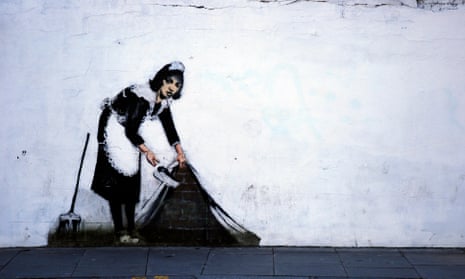In 2020 Inigo Philbrick was arrested by the FBI on the Pacific island of Vanuatu and brought to Manhattan in handcuffs. He was wanted for his part in one of the biggest art frauds in history. Still only in his early 30s, he was accused of duping art investors into parting with around $86m. Lawsuits were piling up, accusing him of forging legal documents, double-dealing priceless artworks and refusing to pay enormous debts to people he still called friends, (although the feeling almost certainly wasn’t mutual). Found guilty and banged up in the jail where Epstein killed himself, he was eventually shipped out to a low security prison to serve seven years. In the end he got out after three, which only goes to show that Philbrick has the luck of the devil.
In this exhilarating book, Orlando Whitfield tells the story of his former friend’s downfall in thrilling detail. Inigo and Orlando start out as two baroquely named undergraduates at Goldsmiths, University of London, both from arty families (Whitfield’s dad used to run Christie’s, Philbrick’s was head of a distinguished museum in Connecticut). They become pals and finally partners as I & O Fine Art. They shift a Rego, attempt to acquire a Bansky from a Shoreditch door and generally try to become masters of the artiverse.
Whitfield positions himself as Boswell to Philbrick’s Johnson, Ryder to his Flyte, Carraway to his Gatsby. The way he tells it, he is the less sophisticated one whose job is to take notes while Philbrick pulls off a series of extraordinary stunts. At the start, these are nothing more than a series of blags by a young man in a hurry. Philbrick gets a perch at the White Cube gallery and convinces Jay Jopling to let him run a spin-off venture, Modern Collections, which deals with the secondary art market as opposed to buying directly from artists (there is no suggestion that Jopling is in any way involved in Philbrick’s fraud – in fact, Whitfield writes that he is still owed money). He pals up to Norman Rosenthal, late of the Royal Academy, and even manages to convince Gilbert & George to let him show some of their earlier work that had never previously left their East End studio.
But then, little by little, downright dishonesty creeps in. Whitfield, who by this time has morphed from being Philbrick’s business partner to his employee at Modern Collections, is able to watch as his boss pulls off deals that seem to be too good to be true. That’s because they are. Philbrick starts by flipping paintings – the perfectly legal practice of buying a work and then immediately flogging it at a profit. Soon, though, he moves on to acquiring a damaged picture from an insurance company and silently “restoring” it using what sounds like a spray gun and some dentistry tools. This boosts its value by around $2.5m dollars.
Chafing at being Philbrick’s underling, Whitfield splits in order to set up on his own. Not averse to a bit of brinkmanship, he nonetheless finds that he just doesn’t have the necessary nerves of steel to cut it in what sounds like a deeply unpleasant milieu. In a puddle of Xanax, champagne and terror, he is ordered by his mother to rehab to sort out his life and learn to love art again. During this time, he writes, Philbrick never bothers to return any of his calls or emails.
In retrospect this was perhaps the biggest mistake that the wunderkind ever made. Later, from prison, Philbrick sent Whitfield a whole dump of documents out of which he expected his erstwhile partner and friend to conjure an article putting his side of the story. Whitfield had fallen prey to the temptation, at times, to see Philbrick as a kind of Robin Hood, or at least the perpetrator of victimless crime. But faced with the sheer weight of evidence, he realised how untenable that was. Instead, he used the material to write this book, which, a certain amount of pious throat-clearing notwithstanding, amounts to a case for the prosecution.
It’s packed with damning evidence. Of how, for instance, over a period of three years, Philbrick sold multiple shares in a Rudolf Stingel painting to the point where they added up to 220%. On other occasions he forged invoices to show sceptical backers that their money was really on its way. He even had to invent a particularly dilatory dealer called Martin Herrero to explain his sluggish cash flow.
How could any of this be possible without someone – a grownup? – stepping in. The answer is that the art market is entirely unregulated, and you can get away with things that would be impossible elsewhere – act on inside information, artificially inflate prices, choose whom to sell to. More than this, though, it is a matter of sheer greed: “trading artworks is always trading futures in the hopes that fashion will dictate their continuing rise in value; necessity, that keystone of economic forces, does not apply”.
after newsletter promotion
There are two further questions that dance through this compulsively readable book. The first is why Philbrick embarked on such elaborate scams in the first place. In fact, he answered this himself at his trial.
“For money, Your Honour,”
“That simple?”
“That simple.”
The second is why Whitfield decided to write such an excoriating book about a man whom he clearly once admired, adored even. He ends by admitting that Philbrick will be furious with him. And despite a fair amount of hand-wringing, you can’t help feeling that there is a dash of revenge in there somewhere – perhaps a delayed reaction at having been exposed to such seductive danger.
